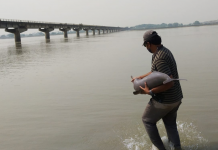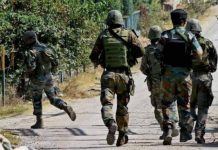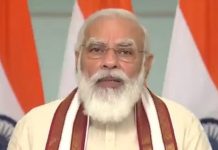 How do you read the ceasefire pact with the Taliban?
How do you read the ceasefire pact with the Taliban?
It can be serious. We have had a spate of ceasefires, which have been very controversial. They have been opposed by a large section of the population because the ceasefires are only seen as a consolidation of the Taliban and their spread to other areas. On the other hand, other people are saying that it will bring peace and improve the justice system in the Swat valley. These may be short-term gains, but the longterm implications of this ceasefire are very very dangerous for the country. I think the fact that the state has been willing to change the legal system in Swat is a very bad precedent for the future. And something like that has not happened even in Afghanistan where the Taliban have controlled many provinces. But the state has never compromised with the Constitution and the legal system. So talking to the Taliban is one thing. It is necessary. But to talk to them and accede very hastily to accepting some of their demands regarding Sharia is a very serious risk.
Would you see it as a surrender? Some strategic experts are talking in terms of the Zardari dispensation having surrendered to the Taliban.
I wouldn’t say it is a surrender because it is still very much up in the air. Zardari hasn’t signed the agreement yet. He has to sign it in order for it to be enforced. And the agreement is still being negotiated both in Swat and Bajaur. But certainly, if it does go ahead and it holds for any length of time, it will be a serious infringement of the state’s authority.
Does the word balkanisation come to mind when you think of the ground situation?
What we are seeing is a growing state of anarchy rather than balkanisation. I don’t think the Taliban are in a position to separate the country or the northern part of the country. But certainly they are in a position to increase anarchy and law and order problems, and there are criminal elements who have joined up with them. There are robberies, beheadings and kidnappings taking place under their name. Some of which they are doing, and some of which is being done by criminal gangs. It is a very complicated situation.
Does it bother you that Pakistan and Afghanistan are now being mentioned together?
Well, I think it certainly bothers a lot of people, especially in the establishment. But I think it’s fair enough because neither country can deal with this issue alone. The fact is that there are Pakistani Taliban fighting in Afghanistan and there are Afghan Taliban fighting in Pakistan. I think it would very immature for us to be in a state of denial about that. The Afghans are not in denial about that but elements in Pakistan certainly are.
Would you say that the Taliban has succeeded in imposing their ideology and political agenda through the barrel of a gun?
That’s absolutely true. Through terror, fear, beheadings and hangings carried out in Swat. I don’t believe that the majority of the Swatis want the Taliban. As we know, something like 350,000 out of a population of 1.5 million have fled Swat. The educated liberal Swatis, teachers, doctors, policemen, and civil administrators have all fled.
Could you briefly describe life in the Swat valley in terms of the parallel judiciary, women in burqas, no music, no barber shops…
That is the situation. For example, the Taliban leader Maulvi Fazalullah has said that NGOs will not return to Swat. A lot of social, health, and education activity was being carried out by NGOs. It’s still uncertain whether girls will be allowed to go back to school and under what conditions. Will male teachers be allowed to teach them? The very fact that the state is having to negotiate these things is a huge sign of weakness.
Who would you say is in control? Is it the Prime Minister? Is it the President?
As far as this deal is concerned, it seems everyone has been on board. The lead was taken by the ANP in Peshawar and I think the ANP has lost a lot of ground because of this deal. I don’t think the lead was taken by the army. The army has followed with the ANP initiative. And the PPP and the President have also come on board. But within all these parties, even within the ANP and the PPP, these deals remain very controversial.
Was the army having a tough time handling the Taliban militarily, having played a role in its creation in the first place?
The phenomenon now is that the Pakistani Taliban have their own agenda for Pakistan. Before, there was a situation where they were an appendage of the Al Qaeda and the Afghan Taliban fighting in Taliban. Over the last two to three years they have developed their own agenda for northern Pakistan. And that is what is most worrying. I certainly don’t think that the army is on board with that. The army is very much opposed to that, but it has limited capacity to deal with it now that the spread of the Pakistani Taliban has become so vast.
They are literally 150km from Islamabad. Right?
Yes. And they are spreading south. And the danger is that they will use Swat as a base to spread south of the valley and then closer towards the capital.
So deal or no deal, ceasefire or no ceasefire, the situation remains pretty serious and alarming.
It is serious and alarming. And it is worrying people in Punjab. There have been Taliban attacks in Punjab also. South Punjab is filled with some of these Punjabi groups, who ally with the Taliban. Karachi is filled with both neo- Taliban and Punjabi groups. Certainly there is a big danger of this spreading to other parts of the country very rapidly.
Isn’t it ironic that the Zardari dispensation is on the verge of signing a pact with the Taliban, which includes Baitullah Mehsud, accused of masterminding Benazir Bhutto’s assassination?
Certainly. It’s very damaging to the prestige of the PPP Government, the ANP who opposed it and who have been facing death threats and attacks by Baitullah’s men. In fact, one MP of the ANP has been killed and the others ministers and MPs are being targeted. It’s difficult to imagine how we are going to be able to have a truce with such a person.
So what were the compulsions for going ahead with the ceasefire if one were to specifically see it from the PPP’s point of view?
I think there is an inherent weakness of the state at the moment. Both in political and military terms. I think the government and the army are exhausted by the heavy fighting that has taken place over the last six to nine months in Bajaur and Swat. At the moment, retaking Swat by the army is not an option because you would need perhaps as many as a hundred thousands troops to do that and the army can’t spare that at the moment.
The PPP has only just completed a year in power and they are already on the verge of a pact with the Taliban?
Well, there has been a steady weakening of the state’s response to this threat over the past year. And I don’t think the government has been properly focused on that. It’s been more focused on the political rankling inside Punjab and the Centre and Nawaz Sharif and the lawyers movement and other things rather than focusing on the threat of extremism.
So are you amazed a little by the US reaction to the ceasefire because they are not openly opposing it, saying the Sharia is part of Pakistan’s Constitution?
Well, I think the US has to work with the Pakistani Army. It doesn’t have a choice. I think they were surprised by what happened in Swat. I don’t think they were properly informed about it especially when Richard Holbrooke was visiting the region. But they still realise that they have to work with the army.
To what extent should India worry?
India needs to worry enormously about it because many of these groups who ally to the Taliban, have an agenda in India. The last thing you want to see is the Taliban actually reaching upto the Indian border. In which case India will be faced with having part of the Pakistan border under the control of the Taliban, which is not something India will like very much.












